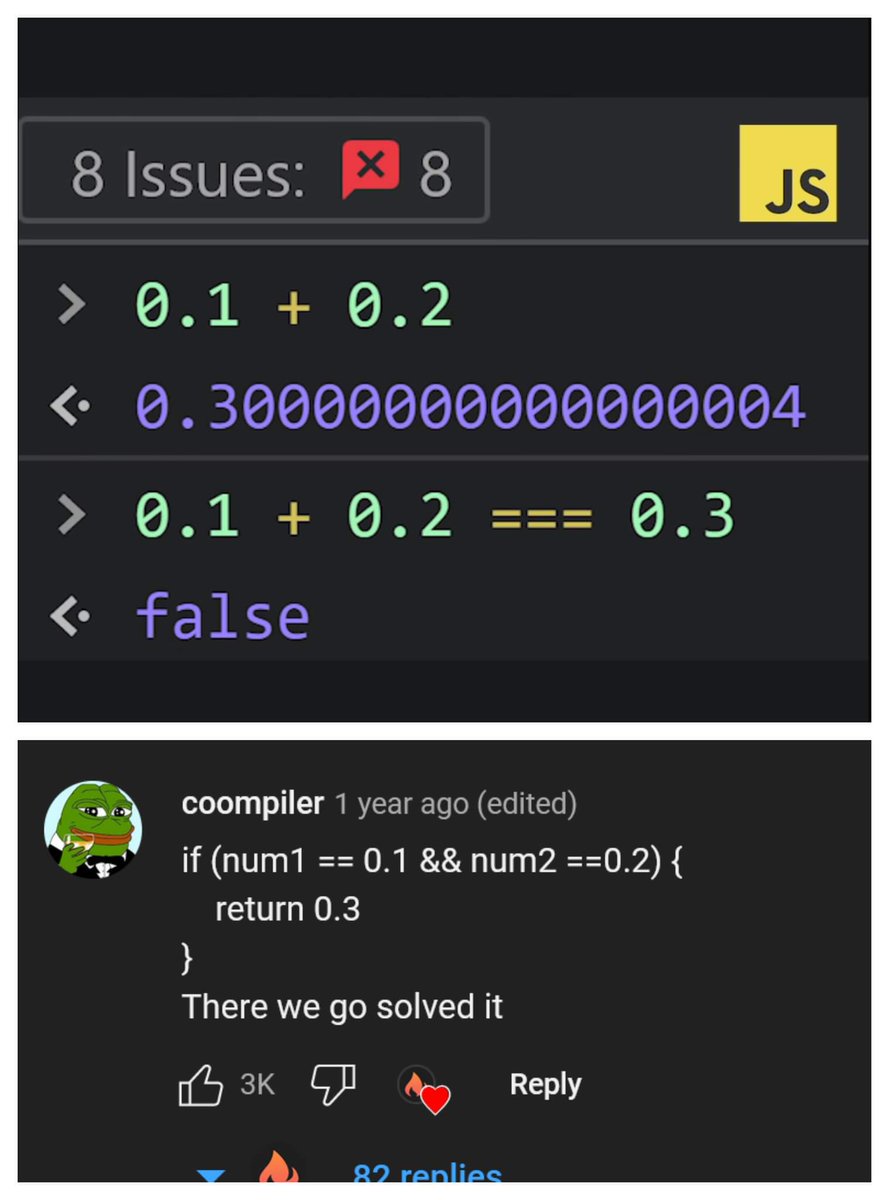this post was submitted on 25 Jun 2023
12 points (100.0% liked)
Programmer Humor
19589 readers
687 users here now
Welcome to Programmer Humor!
This is a place where you can post jokes, memes, humor, etc. related to programming!
For sharing awful code theres also Programming Horror.
Rules
- Keep content in english
- No advertisements
- Posts must be related to programming or programmer topics
founded 1 year ago
MODERATORS
you are viewing a single comment's thread
view the rest of the comments
view the rest of the comments

I know this is a humor subreddit and this is a joke, but this problem wasted a huge week of mine since I was dealing with absurdly small numbers in my simulations. Use fsum from math library in Python to solve this people.
One of my lecturers mentioned a way they would get around this was to store all values as ints and then append a . two character before the final one.
Yeah, this works especially well for currencies (effectively doing all calculations in cents/pennies), as you do need perfect precision throughout the calculations, but the final results gets rounded to two-digit-precision anyways.
quite a horrible hack, most modern languages have decimal type that handles floating rounding. And if not, you should just use rounding functions to two digits with currency.
Not sure what financing applications you develop. But what you suggest wouldn't pass a code review in any financial-related project I saw.
Using integers for currency-related calculations and formatting the output is no dirty hack, it's industry standard because floating-point arithmetic is, on contemporary hardware, never precise (can't be, see https://en.wikipedia.org/wiki/IEEE_754 ) whereas integer arithmetic (or integers used to represent fixed-point arithmetic) always has the same level of precision across all the range it can represent. You typically don't want to round the numbers you work with, you need to round the result ;-) .